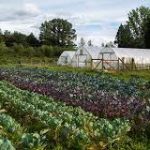Bamboo Cultivation Flourishes in Uganda as Government Promotes Export Expansion
Uganda is witnessing a surge in bamboo farming, propelled by its robust growth and potential recognized by the government. Seen as a versatile solution, bamboo offers multifaceted benefits ranging from fuel for rural communities to reducing pressure on diminishing forest reserves of eucalyptus and other natural resources.
Bamboo’s resilience and adaptability make it an attractive option for conservationists and businesses alike. It can thrive in diverse environments and has a wide array of applications, from furniture to toothpicks.
Taga Nwangaba, a bamboo farmer and entrepreneur, operates a bamboo furniture factory near Kampala, showcasing the material’s versatility. He highlights its potential, saying, “We are making various products… tables, chairs, pens, cups, trophies, sculptures, and more.”
While some bamboo species are imported from Asia, many varieties grow wild in Uganda, including those used for traditional meals in eastern Uganda.
In Western Uganda, Kitara Farm boasts a substantial commercial bamboo plantation, serving as a model for interested farmers. Caretaker Joseph Katumba emphasizes bamboo’s long-term benefits, stating, “A well-maintained plantation can be useful for at least 50 years.”
Unlike eucalyptus, bamboo doesn’t have a specific growth season, grows faster, and can thrive in poor soil conditions. Consequently, Kitara Farm has shifted focus from eucalyptus to expanding its bamboo acreage.
However, Nuwagaba stresses the need for market expansion to convince more people of bamboo’s benefits. He notes the challenges of sensitizing people to bamboo’s potential and the lack of widespread bamboo products.
Despite its potential, bamboo farming faces challenges. Farmers need substantial acreage to generate sufficient income, akin to coffee or tea estates. Banks are offering loans for bamboo plantation capital, and bamboo seedlings are becoming more accessible through private nurseries.
Steve Tusiime, a bamboo enthusiast, operates a bamboo nursery, highlighting the plant’s diversity and utility. Yet, despite growing interest, Uganda’s bamboo plantations remain modest. Tusiime’s nursery has sold fewer than 10,000 seedlings in two years, underscoring the slow pace of industry development.
Nevertheless, Nuwagaba expresses optimism about export prospects but laments the insufficient raw materials hindering production. He emphasizes the need for more bamboo cultivation to meet demand and support industry growth.
The government has set ambitious targets for bamboo planting over the next decade as part of wider reforestation efforts. However, achieving these goals will require concerted efforts to incentivize farmers, especially in rural areas, to embrace bamboo cultivation on a large scale.





